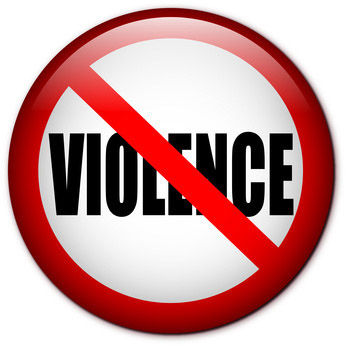Irrespective of the political ideology, supporters of extremist violence in India must be brought to book.
The reaction of the simpatico to the crackdown on Maoist sympathisers — urban Naxals, in popular parlance — via multi-city raids by Pune police which has led to the arrest of five activists, some of them lawyers and academics, is symptomatic of communitarian discourses having overtaken common sense, the primacy of individual rights, due process and faith in the law of the land in contemporary India. While it is entirely correct that being of an extreme ideological persuasion, ultra-Left in this case, is no crime, and dissent is vital to democracy, it is equally important to remember that words and actions including providing material/logistic support intended to promote and/or normalise violence, whether against individuals, the state and its institutions, or class, caste, community groups is illegal and those who do so must face the full might of the law. This applies across the board, of course. So, the lack of discernible strong action against revanchist organisations — Right-wing outfits, in popular parlance — also accused of promoting/normalising violence will and should raise eyebrows. But that is no excuse for saying those who have been identified by police after a months-long investigation as suspects should be exempt from going through due process because of their social standing, ideological position, gender, age, profession, academic qualification, purported advocacy of human rights or any other such factor. The law is blind.
Indeed, it is illustrative that some of the detained suspects are using the legal remedies available to all Indian citizens,thanks in the main to the adherence of Indian state instrumentalities to due process, to question their arrest/remand and they have every right to do so. That those sympathetic to the Maoist/Naxalite cause have through propaganda, agitprop and the propagation of communitarian ideologies been in the forefront of justifying a violent overthrow of an allegedly oppressive Indian state is, in the above context, rather ironical. But then spouting an incendiary discourse against the state and its institutions even while utilising its benefits (justified as tactics’) is a hallmark of extreme ideologies of leftist provenance so it should not surprise us. All this, naturally, is not to say that innocents are not framed by police in this country or false and malicious allegations not made for personal gain/political benefit. But who is to be the judge of that? It is the legal system, decrepit and flawed as it is, which is still the only arbiter of whether a charge is, even prime facie, sustainable and that is because contrary to what some would have us believe, we are not a police state.
The charges against the five detenus, which are a part of sustained Government crackdown on Maoist sympathisers over the past few months, relate to the violence in Bhima Koregaon on January 1, 2018, as well as the investigations carried out by police over subsequent months into the support, logistical and material, allegedly provided by what they have termed Maoist think-tanks. Unlike those who make careers out of cooking up malicious and false allegations and then manipulate simpatico media or use social media to run vicious campaigns against upright institutions and individuals but never approach the courts themselves because their allegations would then be subject to scrutiny at the threshold level itself for prima facie substance before being admitted, when police and/or investigative agencies charge a suspect they know that their actions will be subject to the most rigorous scrutiny by the law courts. It behoves us all to await the result of that scrutiny before rushing to a conclusion one way or the other.
Writer & Courtesy: The Pioneer








 OpinionExpress.In
OpinionExpress.In















Comments (0)